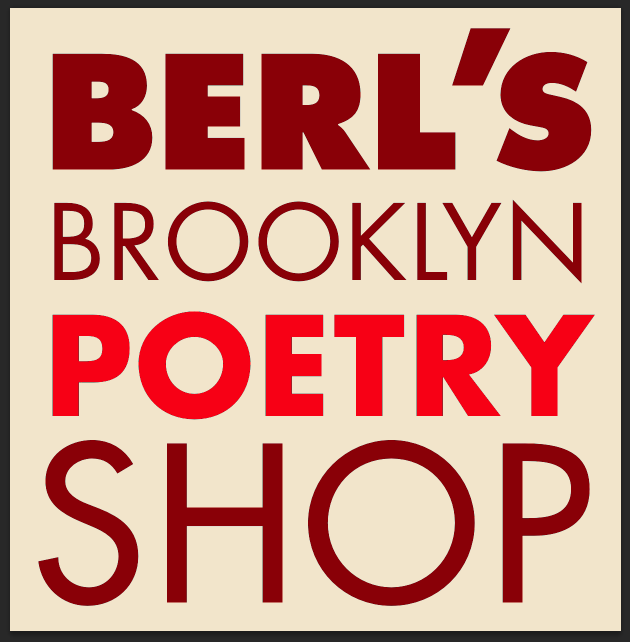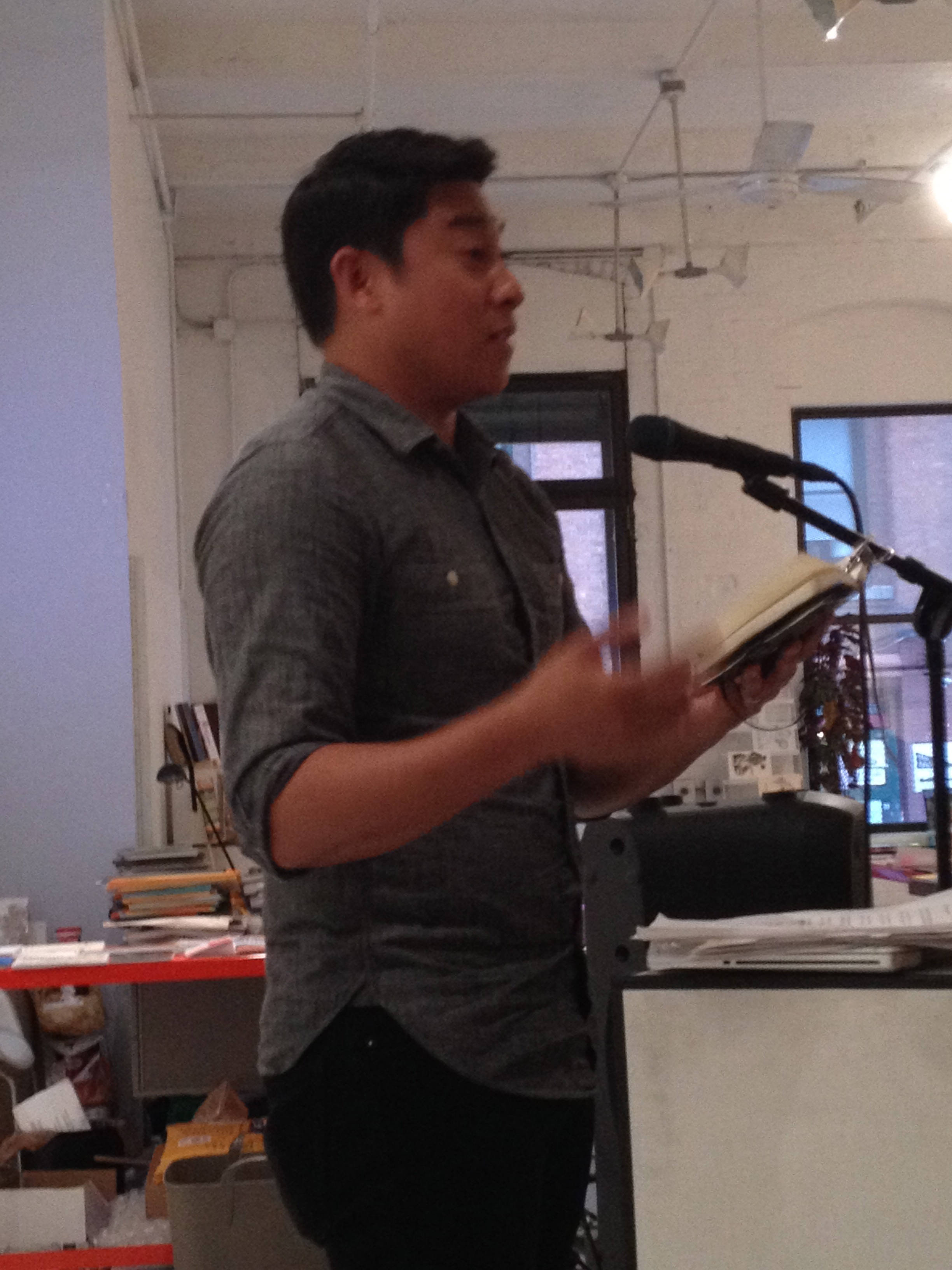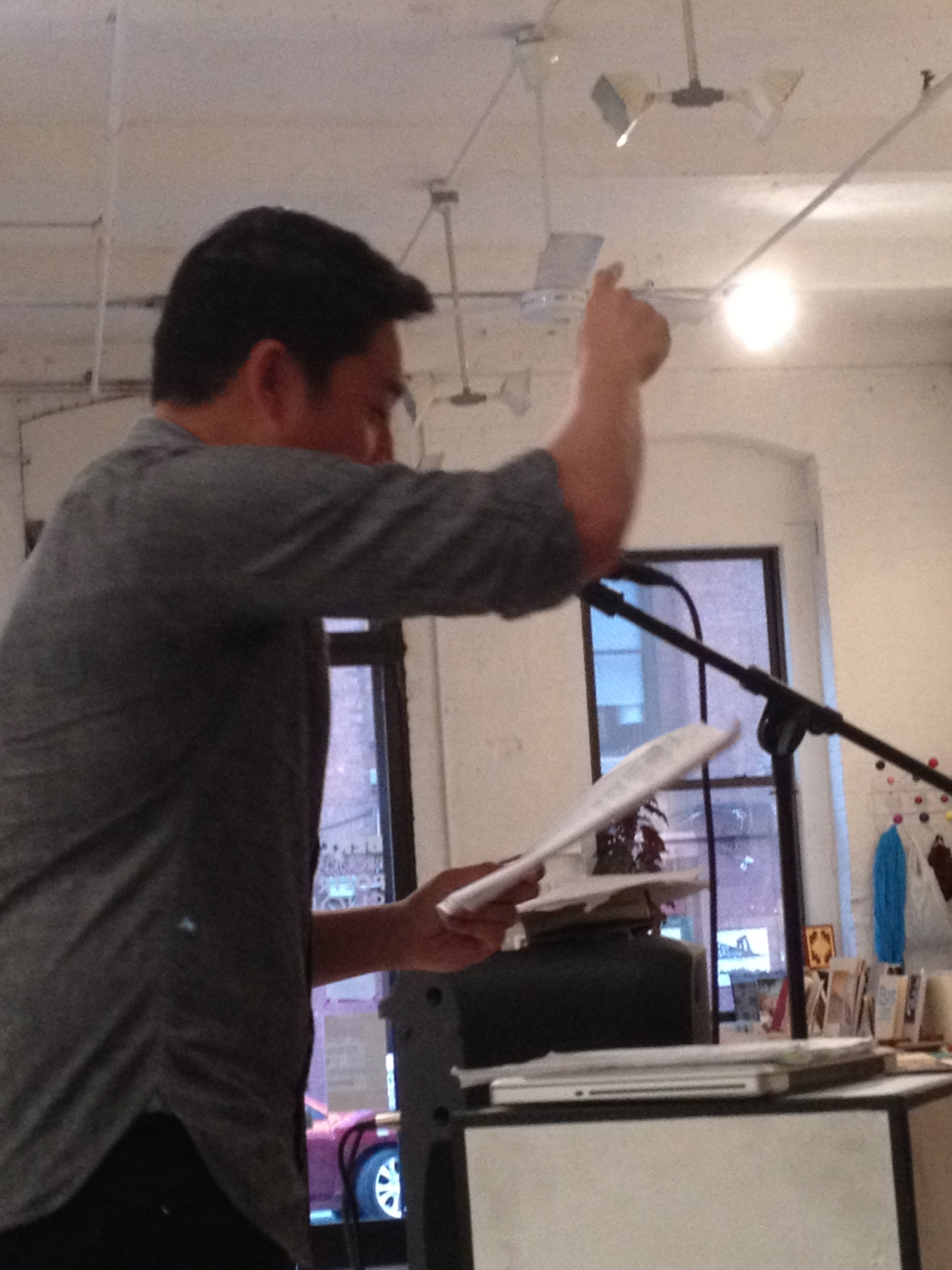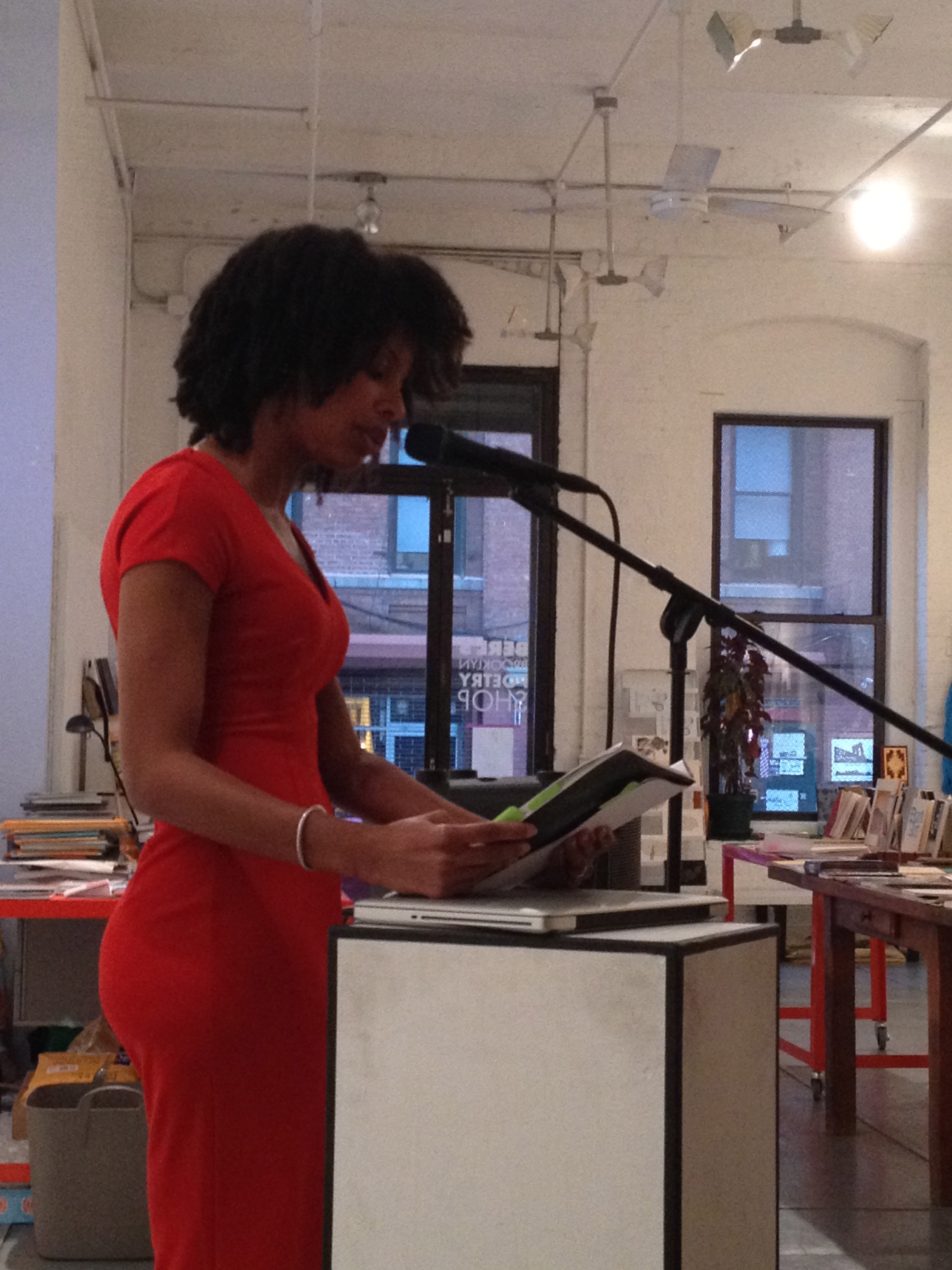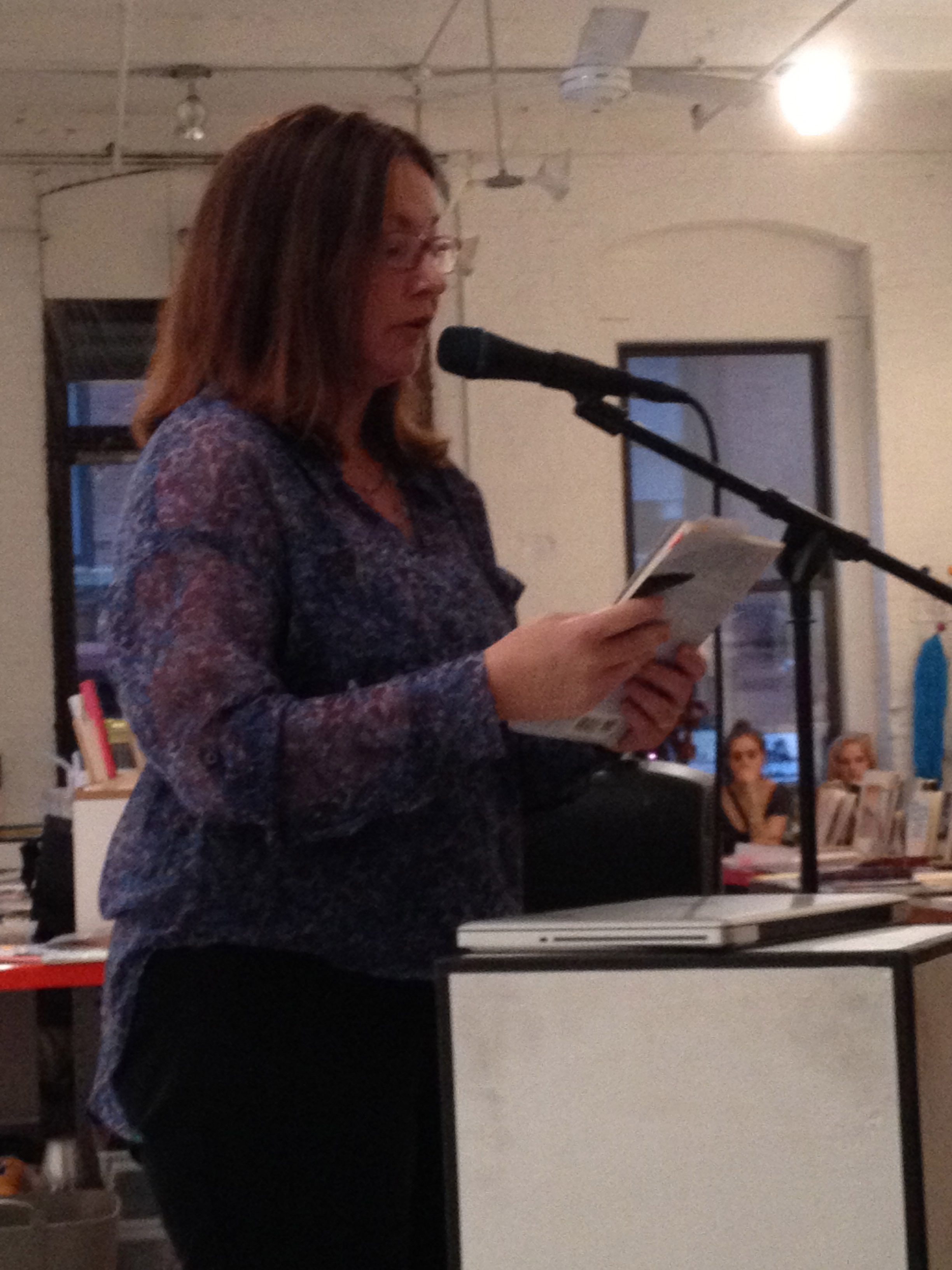John Ebersole, R.A. Villanueva, Nicole Sealey and Megan Marie Sexton
Here are Farrah's introductory notes on the poets:
Myth
Why write about myth? Because it’s bigger than you are, feels set, and what writer wouldn’t want to try to tweak it, to offer his or her experience or interpretation of mythical characters and creatures? It’s like joining a community, an ancient discussion. One of our poets tonight John Ebersole has a line about anonymity and fame and here is the crux regarding myths. The crux is the ars poetica, writing about myth, dealing with myth, that these four poets tonight John Ebersole, RA Villanueva, Nicole Sealey, and Megan Sexton ask what is mine, what is my place, what am I up against.
John Ebersole:
John Ebersole is no grocery store poet. His interest in the violence of writing and the violence of reading. Challenge, risk.
He says on the coercive poetry of accessibility:
“Behind the congenial veil of hospitability, I sense a gang of fanged demons brandishing whips.”
“my poetry needs to brawl”
Jared attended workshop with him he remember John’s awe—how did he do that? As if watching acrobats, feats of human strength.
Melodrama surges in his work. Self flagellation? a la chris burden shot in arm
“When I was born a poisonous gas was released from a glasstube”
“If I am caught claiming I am going to explore the possibility between memory & the present, beat me mercilessly with a curtainrod & throw us together in a dumpster in Orlando.”
“I yearn for anonymity & fame at the same time.”
R.A. Villanueva:
loosens the boundaries between history and memory, time
“years later/ you find yourself home, on the edge/ of a Greater Bangkok throttled/ with fires and protest tambourines.”
a current of voices, ceremony, a catholicism, sacrifice
“Each of us raised by a family of ghosts/ and masks and talking gods”
His poems sit in the places where people have been historically
even while positioning his subject matter in the present day they still seem as though they are from an unrecognized past
“of this flailing, flaring New Jersey sunset of the burnt-ends of cigarettes as they and gravity then the river kiss Red’s surge toward night-fall”
He’s the kind of poet who makes you wonder, what have you been reading? And what are you going to do next?
Nicole Sealey:
“if a few are familiar with the myth of you”
Myths, archetypes, a kind of classification that doesn’t always want to be named but is kind of named
Sealey often investigates certain subject matter such as Dorian Corey, Sisyphus, grief, Brad Pitt, Clue…
and the objects and films that come into contact with these subjects
as well as the unspoken space of people and animals who straddle more than one culture—object & story, self & myth, man as woman,
“What I want to be, I be—crew-cut queen,/ superman, mother and son, or become.”
She explores the powerful and vulnerable nature of self-mythology
“even the gods have gods”
who tells the stories who are the gods is the writer god-like
“How do we/ author our gentle birth, the height/ we were—were we gods rolling stars across/ a sundog sky, the same as scarabs?”
Megan Marie Sexton:
by Mercer University Press
Swift Hour opens with an epigraph from a leonard Cohen song, “I hope you’re keeping some kind of record.”
Like Cohen, Sexton is looking for the crack in everything that lets the light in, but even more urgent is the recording of these moments. Life is quickly passing, but along the way, relics are harvested for safekeeping. Sexton is a poet in search of shadows as well as light. Her explorations range from the grieving mothers of the Disappeared of Argentina, the censorship of Anna Akmatova, to Ghandi’s ashes being scattered into the Ganges. With surrealist twists, her poems capture how incongruous images of memory can redeem the pain of our past. Sexton’s poems of marriage and motherhood explore the mythical possibilities of relationships—her daughter conjures Persephone in the grocery aisle and a man and woman on a Greyhound bus suddenly become Orpheus and eurydice. Her work reminds us how in some ways myth and knowledge itself help us to navigate through the shadows toward the light.
